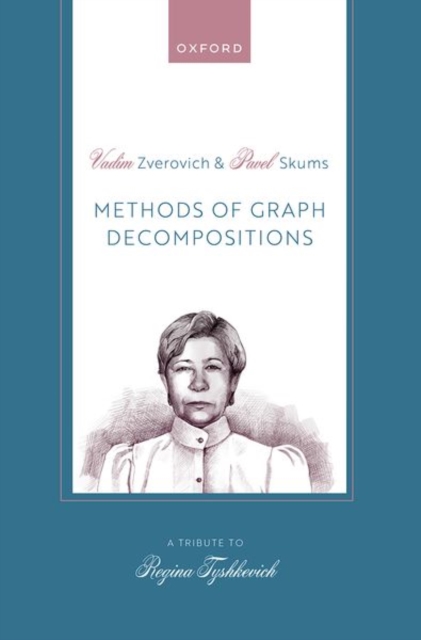
Methods of Graph Decompositions Hardback
by Dr Vadim (Associate Professor of Mathematics, Head of the Mathematics and Statistics Rese Zverovich, Dr Pavel (Associate Professor, Department of Computer Science, Georgia State University, USA) Skums
Hardback
Description
In general terms, a graph decomposition is a partition of a graph into parts satisfying some special conditions.
Methods of Graph Decompositions discusses some state-of-the-art decomposition methods of graph theory, which are highly instrumental when dealing with a number of fundamental concepts such as unigraphs, isomorphism, reconstruction conjectures, k-dimensional graphs, degree sequences, line graphs and line hypergraphs.
The first part of the book explores the algebraic theory of graph decomposition, whose major idea is to define a binary operation that turns the set of graphs or objects derived from graphs into an algebraic semigroup.
If an operation and a class of graphs are appropriately chosen, then, just as for integers, each graph has a unique factorization (or canonical decomposition) into a product of prime factors.
The unique factorization property makes this type of decomposition especially efficient for problems associated with graph isomorphism, and several such examples are described in the book.
Another topic is devoted to Krausz-type decompositions, that is, special coverings of graphs by cliques that are directly associated with representation of graphs as line graphs of hypergraphs.
The book discusses various algorithmic and structural results associated with the existence, properties and applications of such decompositions.
In particular, it demonstrates how Krausz-type decompositions are directly related to topological dimension, information complexity and self-similarity of graphs, thus allowing to establish links between combinatorics, general topology, information theory and studies of complex systems.
The above topics are united by the role played in their development by Professor Regina Tyshkevich, and the book is a tribute to her memory.
The book will be ideal for researchers, engineers and specialists, who are interested in fundamental problems of graph theory and proof techniques to tackle them.
Information
-
Pre-Order
- Format:Hardback
- Pages:272 pages, 62
- Publisher:Oxford University Press
- Publication Date:14/05/2024
- Category:
- ISBN:9780198882091
Information
-
Pre-Order
- Format:Hardback
- Pages:272 pages, 62
- Publisher:Oxford University Press
- Publication Date:14/05/2024
- Category:
- ISBN:9780198882091






